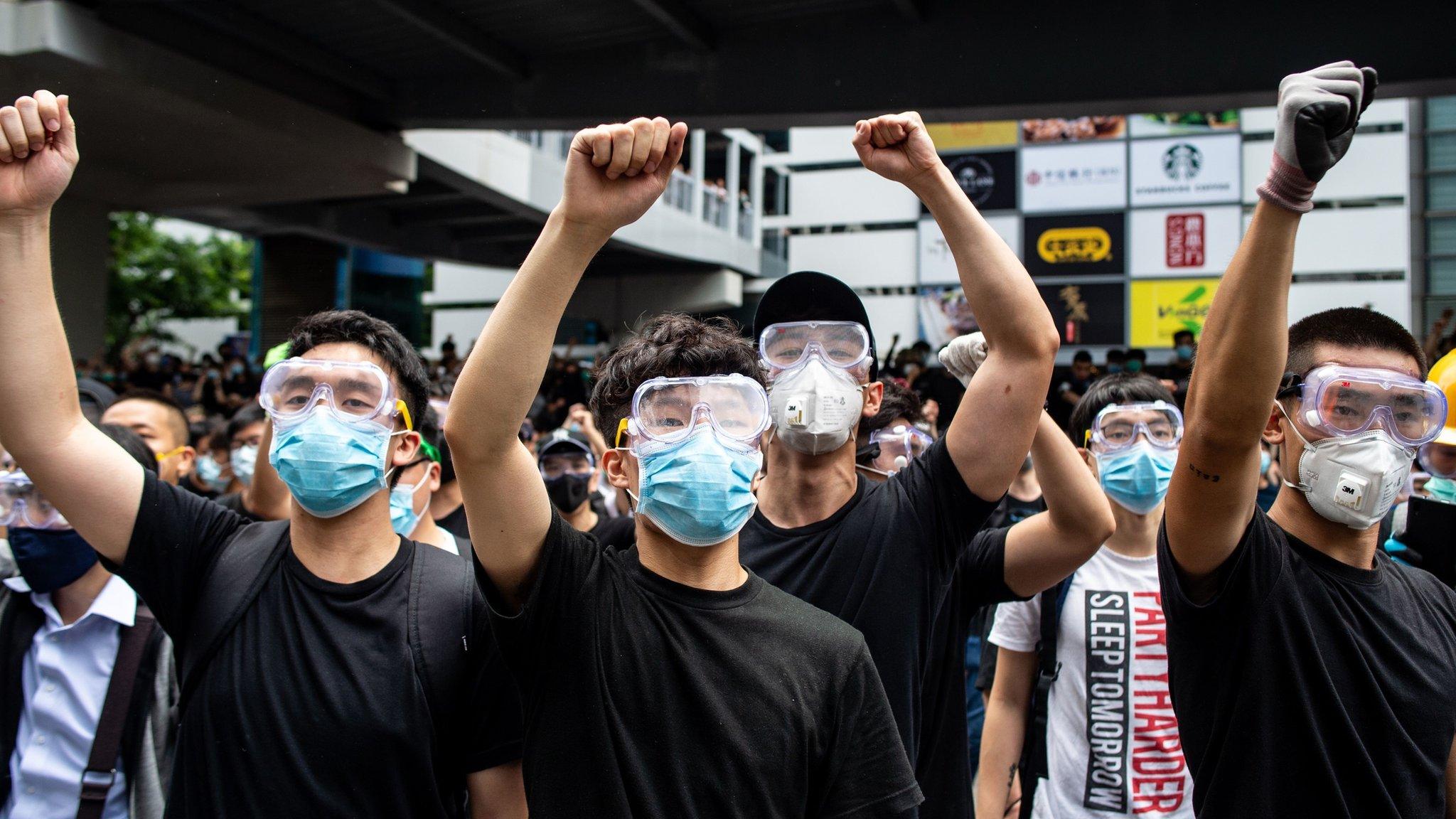Hong Kong: Protesters storm and deface parliament on handover anniversary
- Published
Demonstrators batter their way into parliament
Protesters have forced their way into the central chamber of Hong Kong's parliament after an hours-long siege.
Dozens of demonstrators broke through the glass of the Legislative Council (LegCo) building earlier in the day.
Hundreds then entered the building, spray-painting messages on the walls and carrying supplies for those occupying the premises.
At midnight, (16:00 GMT) hundreds of police charged towards the building after warning protesters to clear it.
Police fired tear gas into the remaining crowd outside the building as they advanced. Earlier on Monday evening, police warned that protesters must clear the building or face "appropriate force".
Most of the demonstrators had left the building by then – though a few still remained in the central chamber.
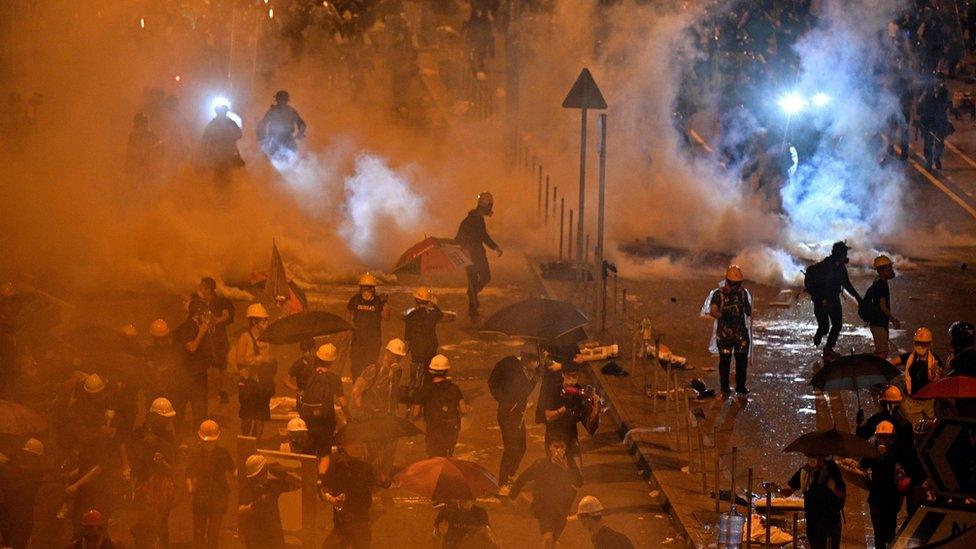
Police fired tear gas as they charged the building
Are you at the protests? Email haveyoursay@bbc.co.uk
Extensive damage was done to the building, with portraits of political leaders torn from the walls and furniture smashed.
Inside the central legislative chamber, one protester sprayed black paint across the emblem of Hong Kong on the rear wall - while another raised the old British colonial flag.
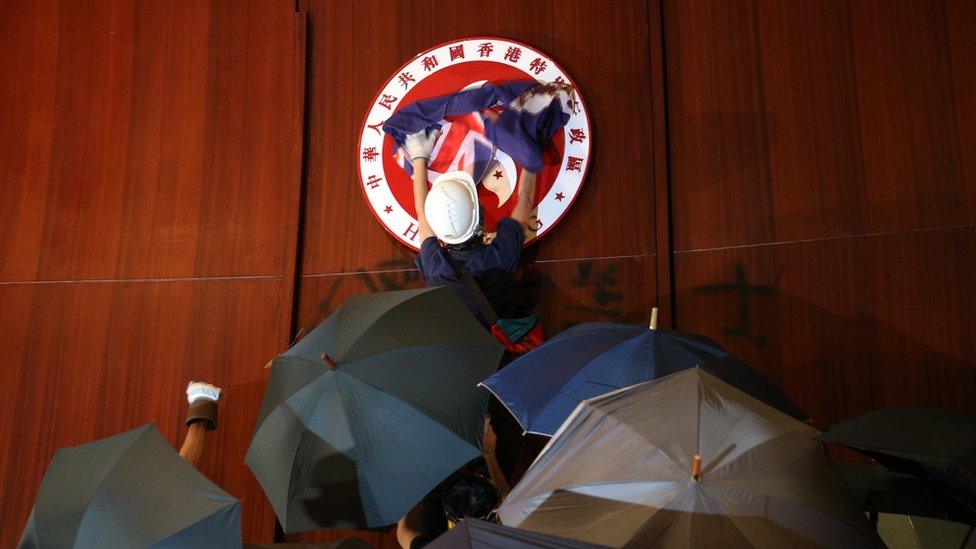
Protesters defaced the emblem of Hong Kong and raised a British colonial flag
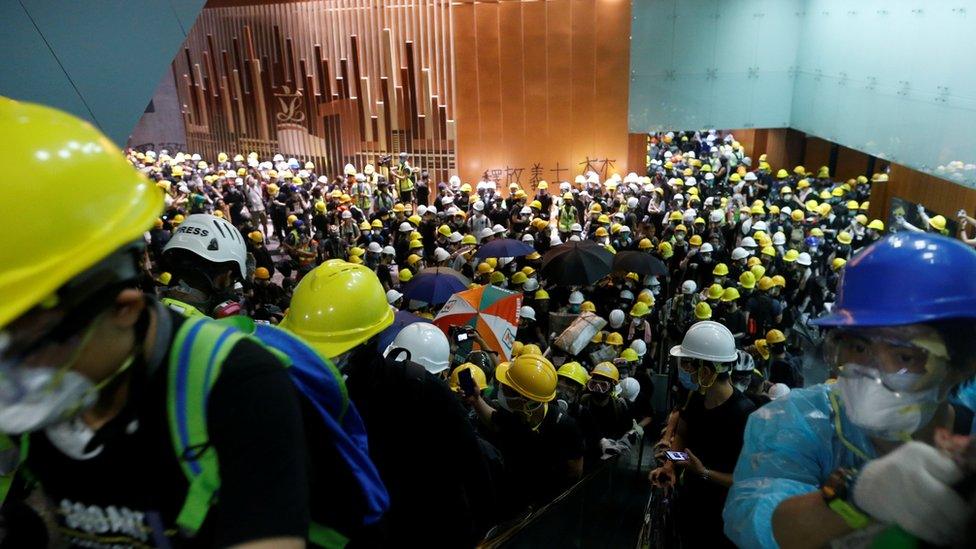
Hundreds poured into the building after a lengthy stand-off with police
The unrest followed a peaceful protest involving hundreds of thousands over a controversial extradition law.
Pro-democracy demonstrators had taken to the streets on the anniversary of the city's handover from UK to Chinese rule.
This is the latest in a series of protests against a controversial bill that would allow extraditions to mainland China.
The government has agreed to suspend it indefinitely, but rallies continue and Chief Executive Carrie Lam is facing calls to resign.
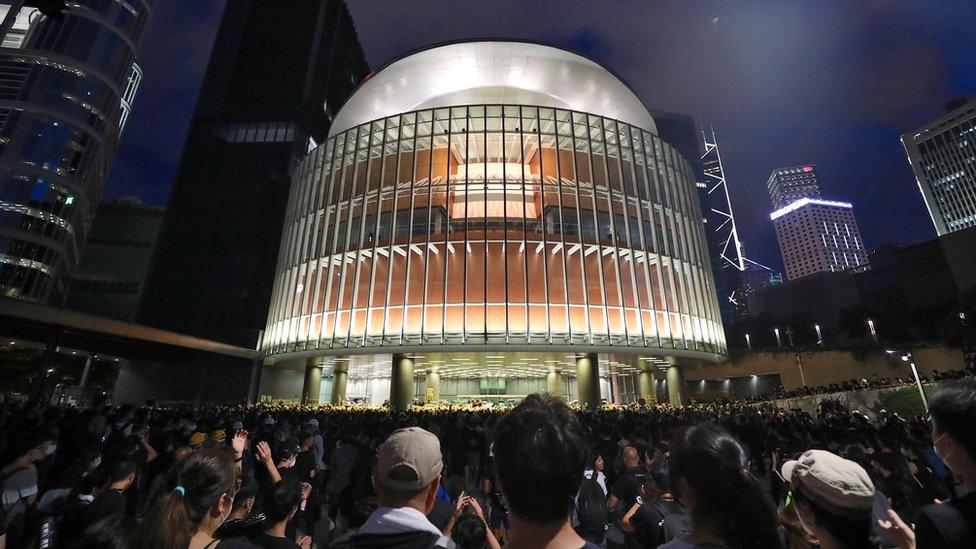
Large crowds gathered outside the city's legislative building
Hong Kong, a former British colony, has been part of China since 1997 under a "one country, two systems" deal that guarantees it a level of autonomy. Pro-democracy events are held every year to mark the handover.
UK Foreign Secretary Jeremy Hunt tweeted that "UK support for Hong Kong and its freedoms is UNWAVERING on this anniversary day".
Allow X content?
This article contains content provided by X. We ask for your permission before anything is loaded, as they may be using cookies and other technologies. You may want to read X’s cookie policy, external and privacy policy, external before accepting. To view this content choose ‘accept and continue’.
How did events unfold?
On Monday morning, a flag-raising ceremony to mark the handover took place inside the Hong Kong Convention and Exhibition Centre, amid a heavy police presence.
Demonstrators blocked several roads nearby early using items like metal and plastic barriers.
Police officers equipped with shields, batons and pepper spray clashed with hundreds of protesters about 30 minutes before the ceremony.
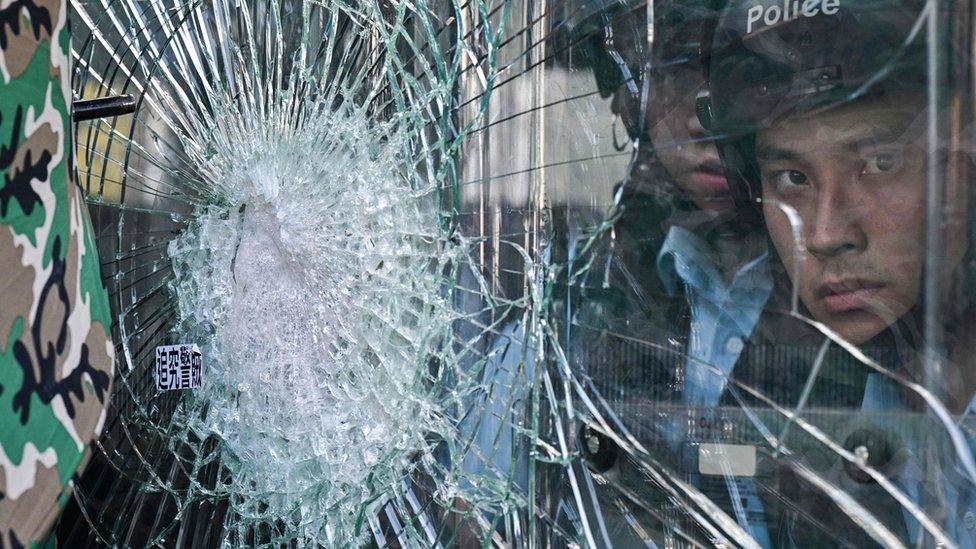
Riot police were posted inside the Legislative Council building
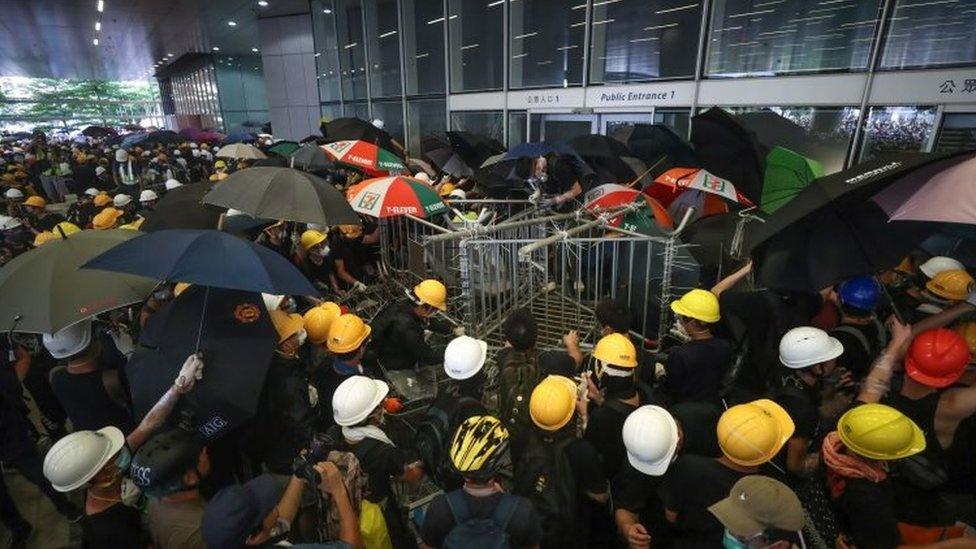
Many protesters were equipped with hard helmets and masks
At least one woman was seen bleeding from a head wound after the clashes, AFP news agency says.
A police statement condemned "illegal acts" by protesters who, it said, had taken iron poles and guard rails from nearby building sites.
Thirteen police officers were taken to hospital after protesters threw an "unknown liquid" at them, police said. Some are reported to have suffered breathing difficulties as a result.
Thousands then joined a mostly peaceful pro-democracy march on Monday afternoon.
At about lunchtime, a breakaway group of protesters moved to LegCo. The small group began ramming the glass doors with a metal trolley, succeeding in smashing in the door, before largely dispersing.
On Monday evening, some then returned to LegCo and began pulling off external fencing and entered the building.
Police had warned it would arrest protesters breaching the site but apparently fell back instead.

One man, identifying himself as G, told the BBC protesters were ready for a backlash.
"The movement is now beyond the bill," he said. "It's about the autonomy of Hong Kong."
The government condemned what it labelled "extremely violent" acts, adding police would "take appropriate enforcement action to protect public order and safety".
Why have people been protesting?
Hong Kong's "one country, two systems" system allows it freedoms not seen in mainland China, including judicial independence.
The extradition bill raised concerns for that status.
Critics of the bill feared it could be used to target opponents of the government in Beijing, and to bring Hong Kong further under China's control.
Mass demonstrations forced the government to apologise and suspend the planned extradition law.
However, many protesters said they would not back down until the bill had been completely scrapped.
Mrs Lam said she personally had to shoulder much of the blame for the row
Many are still angry about the level of force used by police against protesters, and have called for an investigation.
However, there have also been smaller demonstrations by the territory's pro-Beijing movement.
On Sunday, thousands of pro-Beijing protesters rallied in support of the Hong Kong police.
- Published1 July 2019
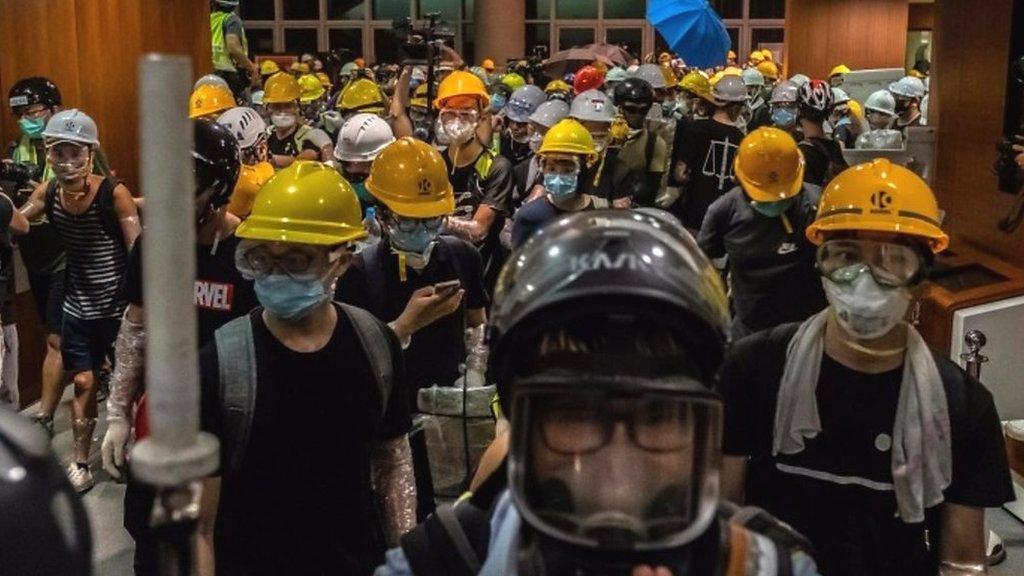
- Published30 June 2019
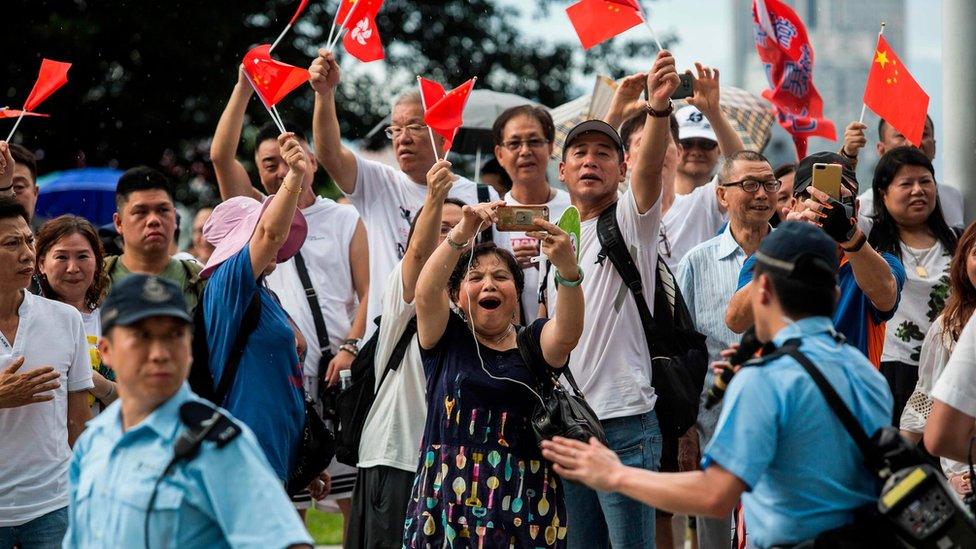
- Published30 June 2019
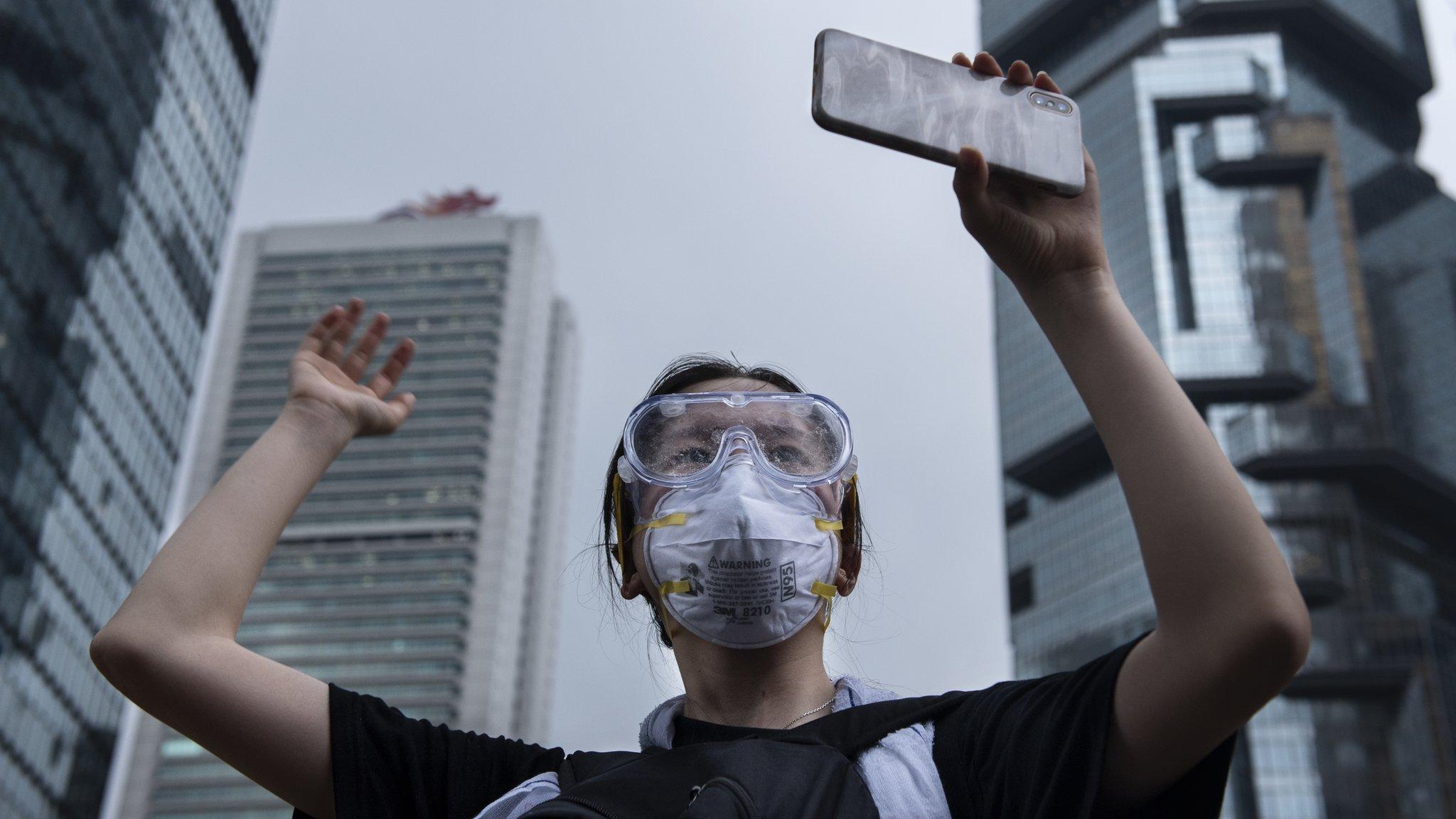
- Published17 June 2019
